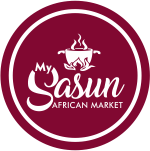Introducing solid foods to a baby can be both exciting and daunting for any new parent. There are a variety of baby foods available in the market but choosing the right one can be overwhelming. In this blog post, we will discuss tips on how to introduce solid foods into your baby's meal plan and what foods to start with.
READ HEALTH BENEFITS OF ONIONS
When to Start Introducing Solid Foods
The World Health Organization (WHO) recommends that babies should be exclusively breastfed for the first six months of their life. After six months, babies are ready for solid foods, but breast milk or formula should still be their primary source of nutrition until they are one year old.
How to Introduce Solid Foods
When introducing solid foods, start with small amounts and gradually increase the quantity over time. It is important to introduce only one new food at a time, and wait a few days before introducing another, to watch out for any allergic reactions.
To start, mix breast milk or formula with pureed or mashed fruits or vegetables such as avocado, banana, sweet potatoes, or carrots. Gradually increase the texture of the food as your baby gets used to it, moving from purees to mashed foods and eventually finger foods.
For Africans, some of the best foods to start with include:
Pap (Ogi): Pap is a popular Nigerian breakfast cereal made from maize or corn. It is easy to digest and fortified with essential vitamins and minerals.
Amala and Ewedu: Amala made from yam flour is one of the meals that babies are introduced to early enough. It’s important to put little to no pepper in it.
Rice cereal: Rice cereal is popular first food for babies in Nigeria. It is easy to digest and fortified with iron, which is essential for a baby's growth and development.
Yam or sweet potatoes: These root vegetables are an excellent source of carbohydrates and vitamins, and they are easy to digest. Boil and mash them until smooth and mix with a little breast milk or formula.
Mashed plantains: Plantains are a good source of fiber and potassium. Boil and mash them until smooth and mix with a little breast milk or formula.
Pureed fruits and vegetables: Fruits such as bananas, mangoes, and pawpaw are excellent sources of vitamins and minerals. Vegetables such as carrots, green beans, and peas are also rich in vitamins and minerals. Boil and mash them until smooth or blend them with a little breast milk or formula.
You can get some of these items in our store: pap, yam, yam flour, plantains, etc.
Place your order via the website or app.
READ MATCHING DRINKS FOR DIFFERENT WEATHERS IN NIGERIA.
Conclusion
Introducing solid foods to your baby can be an exciting and fun experience. Start with small amounts of pureed or mashed foods and gradually increase the texture as your baby gets used to it. Stick to nutritious foods and avoid adding salt, sugar, or spices to your baby's food. Remember to consult with your pediatrician before introducing any new foods to your baby. With proper care and attention, you can provide your baby with a healthy and nutritious start to their lifelong journey of food exploration.







Comments (37)
At first i never thought it will happen until i gave it a try, because i have been hearing people saying it and my life has been like a hell in a cell having this herpes virus in my body. thank you so much for your unwavering dedication, and life-changing impact on my health. Your holistic approach to healing not only cured my herpes virus but also restored my faith in the power of natural medicine. Your personalized care, deep knowledge of herbal remedies, and compassionate guidance have been nothing short of miraculous in my healing journey.
Your commitment to providing effective and sustainable solutions goes above and beyond expectations. The way you attentively listened to my concerns, meticulously crafted a treatment plan, and continuously supported me through every step of the process has truly transformed my life. Your healing hands and compassionate heart have made a lasting impression on me, leaving me forever grateful for the positive changes you have brought into my life. Today i will like to use this medium to say a big THANK YOU and also recommend him to everyone suffering from HERPES, HEPATITIS, CANCER, KIDNEY FAILURE, BARRENESS, HIV AIDS, HSV1, HSV2, WEAK ERECTION, LOW SPERM COUNT, LUPUS, SKIN CANCER you can reach him on his Email: drkuriamaherbalhome@gmail.com
WhatsApp: +2349069653609
website https://onetouchkuriamaherbal.weebly.com
Am testifying of the miraculous work of a great traditional doctor called Dr Ahonsie. I have been suffering from herpes since last 2 years with my Husband but today I am happy that am cure from it with the herbal medicine made by Dr Ahonsie the great healer, I was browsing the Internet searching for help when I came across a testimony shared by someone on how Dr Ahonsie cure her from Herpes Disease. I quickly contacted him to get the cure and today I am now free from the Virus
his Email: drahonsie00@gmail.com
WhatsApp: +2348039482367
https://drahonsie002.wixsite.com/dr-ahonsie
I would never have believed that cold sore herpes virus can be cured with ancient herbal medicine because I just tested negative for the second time since I finished drinking the medicine a herbal doctor sent to me, all the sores and blisters were gone immediately I started drinking the herbal meds, so I want you all to know that herpes virus can be cured with the right use of ancient herbal medicine so visit this herbalist called doctor excel on his Email: drahonsie00@gmail.com
WhatsApp: +2348039482367
https://drahonsie002.wixsite.com/dr-ahonsie
Powerful Herbal treatment is 100% guarantee for HSV cure, the reason why most people are finding it difficult to cure HSV 1 or 2 is because they believe on medical report, drugs and medical treatments which is not helpful to cure HSV and hasn’t proved any sign of helping. Natural roots/herbs are the best remedy which can easily eradicate herpes forever. I never believed it until I was helped and cured of my 16 months genital herpes with natural herbal medicines from Dr Sikies. Where other medical prescribed drugs and treatments failed, Dr Sikies natural herbs helped saved me from Genital herpes permanently and I’m so grateful for this. You can also get help from this great and powerful Herbalist Dr Sikies by reaching himon Email: drsikies@gmail.com / WhatsApp +2348163430143 website to make order now : https://drsikesherbalcuremedicine.weebly.com/
Powerful Herbal treatment is 100% guarantee for HSV cure, the reason why most people are finding it difficult to cure HSV 1 or 2 is because they believe on medical report, drugs and medical treatments which is not helpful to cure HSV and hasn’t proved any sign of helping. Natural roots/herbs are the best remedy which can easily eradicate herpes forever. I never believed it until I was helped and cured of my 16 months genital herpes with natural herbal medicines from Dr Sikies. Where other medical prescribed drugs and treatments failed, Dr Sikies natural herbs helped saved me from Genital herpes permanently and I’m so grateful for this. You can also get help from this great and powerful Herbalist Dr Sikies by reaching himon Email: drsikies@gmail.com / WhatsApp +2348163430143 website to make order now : https://drsikesherbalcuremedicine.weebly.com/
Am testifying of the miraculous work of a great traditional doctor called Dr Ahonsie. I have been suffering from herpes since last 2 years with my Husband but today I am happy that am cure from it with the herbal medicine made by Dr Ahonsie the great healer, I was browsing the Internet searching for help when I came across a testimony shared by someone on how Dr Ahonsie cure her from Herpes Disease. I quickly contacted him to get the cure and today I am now free from the Virus
his Email: drahonsie00@gmail.com
WhatsApp: +2348039482367
https://drahonsie002.wixsite.com/dr-ahonsie
If you have been taking conventional medicines for that Herpes infection and you are still having those re-occurring outbreaks, why don’t you try Herbal Medicines and see it get cured in weeks. For more information, send me an
Email: ridvid8@gmail.com
Telegram: @wafri01
websitehttps:
https://ridvid8.wixsite.com/dr-ayo-herbs-home/about-5
HOW I GOT CURED FROM HERPES SIMPLEX VIRUS:
God bless Dr. OLIHA for his marvelous work in my life, I was diagnosed of HERPES since 2023 and I was taking my medications, I wasn’t satisfied, i needed to get the HERPES out of my system, I was directed by my brother in-law to meet Dr. OLIHA who is good at curing HERPES DIABETES and CANCER with his herbal medicine, I contacted him and he guided me. I asked for solutions, he started the remedy for my health, he sent me the medicine through UPS delivery service (UPS). I took the medicine as prescribed by him and 2 week later i was cured from HERPES, Dr. OLIHA truly you are great, do you need his help also? Why don’t you contact him through email: {oliha.miraclemedicine@gmail.com} visit him website https://olihamiraclemedici.wixsite.com/drolihamiraclemedici
Powerful Herbal treatment is 100% guarantee for HSV cure, the reason why most people are finding it difficult to cure HSV 1 or 2 is because they believe on medical report, drugs and medical treatments which is not helpful to cure HSV and hasn’t proved any sign of helping. Natural roots/herbs are the best remedy which can easily eradicate herpes forever. I never believed it until I was helped and cured of my 16 months genital herpes with natural herbal medicines from Dr Sikies. Where other medical prescribed drugs and treatments failed, Dr Sikies natural herbs helped saved me from Genital herpes permanently and I’m so grateful for this. You can also get help from this great and powerful Herbalist Dr Sikies by reaching himon Email: drsikies@gmail.com / WhatsApp +2348163430143 website to make order now : https://drsikiesherbalcuremedicine.weebly.com/
This is real, take it seriously. Who will believe that a herbal medicine can cure herpes virus, i never believe that this will work, i have spend a lot money getting drugs from the hospital to keep me healthy, it got to a point that i was waiting for a death to come because i was broke, one day i came across Dr Agbon page. Who is well know for Herpes, HIV, and Cancer cure, i decided to email him i didn’t believe him that much, i just wanted to give him a try, he replied my mail and Needed some Information about me, then i sent them to him, he prepared the herbal meds and he ship the meds as he promised with my details through Courier service. And after receiving it, i took the medicine as prescribed by him after three weeks, he told me to go to the hospital for a check up, and i went, surprisingly after the test the doctor confirm me Herpes simplex virus negative, and i thought it was a joking, i went to other hospital and was also negative, thank you for saving my life, I promise i will always testify of your good works. if you are herpes simplex virus patient, contact him and I am sure you will get cured, contact him now, WhatsApp Number:+2349058797761
Email: dragboherbalhome@gmail.com WebSite: https://dragbonherbalhome.wixsite.com/my-site-3